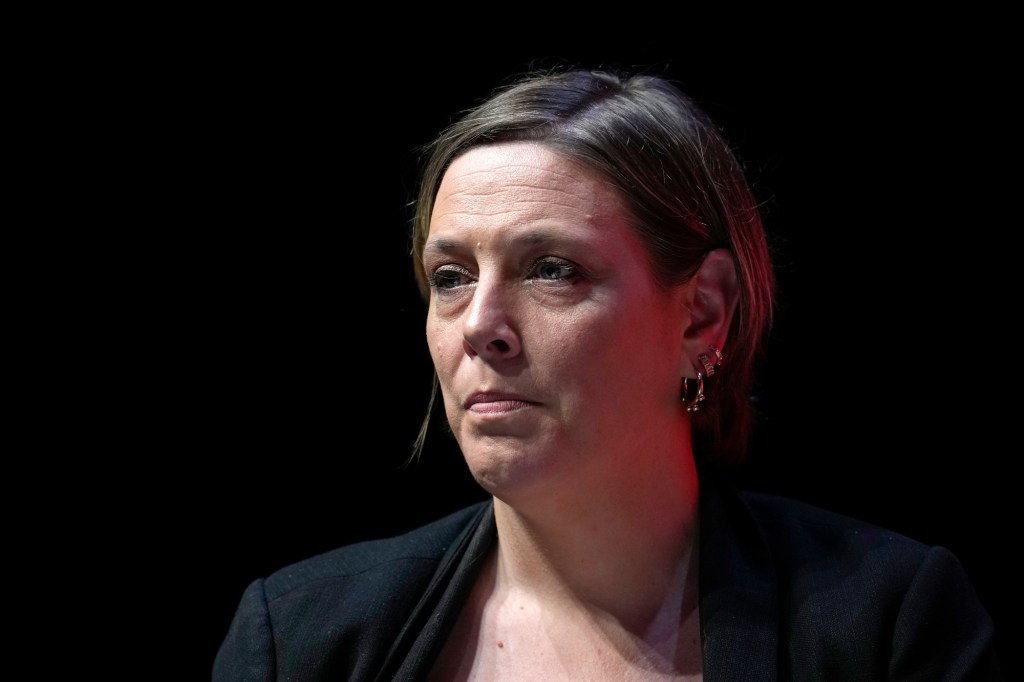Pulling off the rhetorical trick that Brexit would undermine the Northern Ireland Good Friday Agreement, Michel Barnier, the EU negotiator, said in 2018 that the agreement meant removing borders not only from maps, ‘but also in minds’. Even a single CCTV camera on the North-South roads was considered a threat to the peace process. Now it turns out, which is grimly amusing, that the Irish government has not banished the border from its mind. The Republic is upset that asylum seekers are crossing the border that it does not believe in, fleeing the threat of deportation to Rwanda from the United Kingdom. It talks of sending them back, ignoring a recent decision of its own courts that Britain is not a safe country. It surely lacks the capacity to do this because of our common travel area with Ireland. I am fascinated to see the deterrent effect of Rishi Sunak’s Rwanda policy even before it is implemented. It is still highly possible that the policy won’t work, because of legal loopholes, but one can sense the beginning of a certain envy for what Britain is trying to do. The whole of the EU is bound by its own rules called, by chance, the Dublin Regulation. We are not. Immigration is an ever-growing issue of popular discontent across the EU, but European theology insists on open internal borders and is currently extending the Schengen Agreement to Bulgaria and Romania. The EU has no answer to its own problem of mass asylum seeking and other illegal migration. I predict that, within a few years, Europe will embark on a much larger equivalent of the Rwanda programme, perhaps operating in several non-EU countries at once.
Sometimes, it is truly melancholy to be right. We critics of Scottish devolution argued in the 1990s that it would fuel nationalism, more government, incompetence, spending, ill feeling between the Scots and the English and more class and regional conflict within Scotland itself. We were right: it is almost always the case that devolving serious political power creates a more incestuous, corrupt, untalented and illiberal political culture. On the other hand, what was the point of being right? There is no sign that the Scots, dissatisfied though they are, want to abandon their devolutionary rights, so what can be done? I can think of few useful suggestions. Fewer devolved powers would stir resentment. Greater ones would permit further folly.
When you watch a film at home, it is prefaced by the official classification and a brief description of the sensitive areas. One that amuses me is ‘moderate sex’, which conjures up the private lives of Liberal Democrat councillors in somewhere like Sutton and Cheam. At the weekend, we watched The Zone of Interest (outstandingly good, by the way). Its classification is 12 and its stated reasons for this are ‘Alcohol use, smoking’. Since the film is about the life of the commandant of Auschwitz and his family, it might perhaps have added ‘genocide’, but no, we must stick to our 21st-century priorities.
Most comment on the sad accident to the Household Cavalry horses in London last week was sensible, but one thing was not noted. Normally, when horses bolt riderless near their stables, they find their way back to them unaided. In this case, however, they careered off away from Hyde Park and ended up in Limehouse. Was this a silent equine protest against their home, the atrocious Knightsbridge Barracks, built in the 1960s by Sir Basil Spence? About 20 years ago, I had the privilege of riding these magnificent horses in the park sometimes, for which one had to dress in cub-hunting ‘ratcatcher’ and obey orders. The beasts were, of course, beautifully cared for, but the building is bad for them. Not only are the stables subterranean, but Spence’s airflow is inadequate. This has sometimes caused respiratory problems for the horses. The living accommodation for the men is also lousy. There are much better sites elsewhere in central London (where the horses need to remain to perform their ceremonial duties) and there is no need to accommodate so many soldiers in the same place as the horses. How about razing the ugly tower and solving the current debate about suitable commemoration by using the vacated site to honour our most celebrated equestrian, Elizabeth II?
The obituaries of Frank Field rightly noted his good friendship with Margaret Thatcher. She liked and respected Labour MPs whose motivation was Christian rather than Marxist. She was fond of the dear old high-church lefty Eric Heffer, for example. Frank’s working-class Tory mother was quite like Mrs Thatcher, I believe, and Frank would bring her along for tea. ‘They talked as equals,’ Frank told me. ‘Both had dignity.’ Mrs T and Frank loved hymns: ‘They taught us through the centuries where the clergy failed’ and they cherished the soft sadness of evensong. ‘The closing of day,’ she said, ‘the closing of life.’
Under Michael Gove’s Leasehold and Freehold Reform Bill, currently debated in parliament, the ‘marriage value’ of enfranchising a lease will go wholly to the leaseholder. For example, the holder of, say, a ten-year lease in Eaton Square could claim the right to change it into a 990-year lease and gain the entire gigantic financial benefit of that change, with the freeholder getting nothing. This is an attack on property rights, incredible in a Conservative government and a vital precedent for a Labour one. One consequence will be a debt crisis. Much debt is secured against the borrower’s freehold value. If that value is suddenly removed, the debt could become unmanageable.
BBC Today programme, last Monday morning: ‘The House of Commons will debate assisted dying today. Dame Esther Rantzen joins us live.’ I feel that could have been better put.








Comments